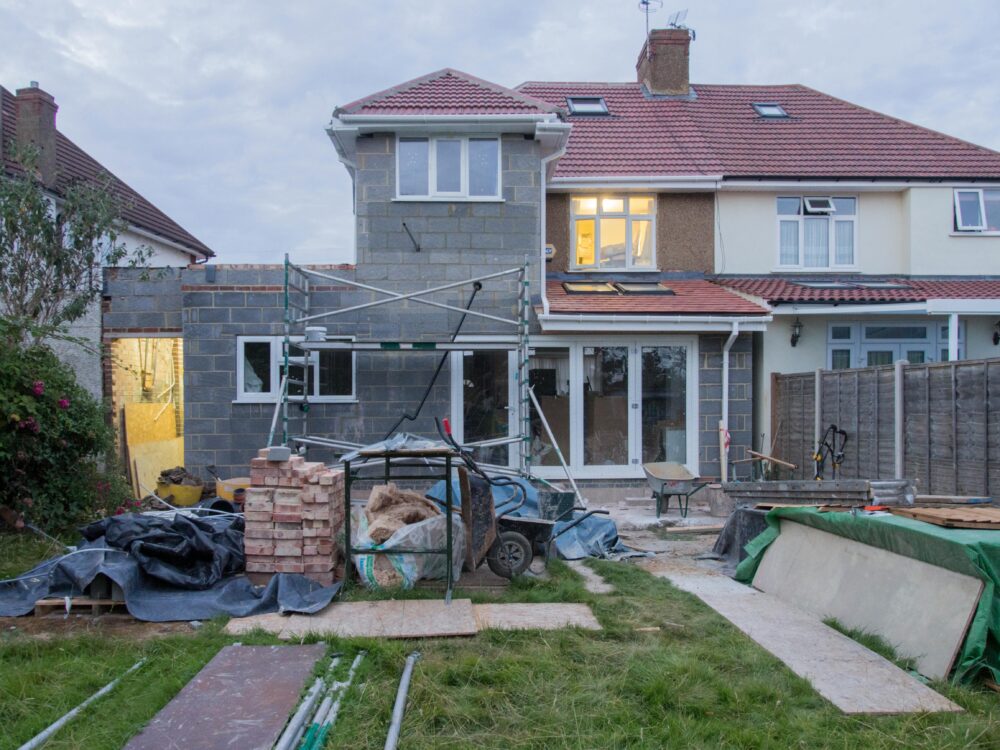
3d rendering of modern cozy chalet with pool and parking for sale or rent. Massive timber beams columns. Beautiful forest mountains on background. Clear summer night with many stars on the sky.
Planning to build your dream custom home is an exciting endeavor, but navigating the world of permits can often feel overwhelming. From zoning regulations to building codes, securing the necessary permits is a crucial step in ensuring a successful and hassle-free construction process. In this guide, we’ll provide you with valuable tips on how to make the permit process as smooth as possible for your custom home build.
Understand Your Local Regulations
Before diving into the permit process, it’s essential to familiarize yourself with the specific regulations and requirements in your local area. Zoning laws, building codes, and permit fees can vary significantly from one jurisdiction to another. Contact your local building department or hire a professional custom home builder who has experience working in your area to ensure compliance with all regulations.
Create a Detailed Plan
One of the key components of a successful permit application is a comprehensive and detailed construction plan. Your plan should include architectural drawings, site plans, structural details, and any other relevant documentation required by your local building department. Working with an experienced architect or designer can help ensure that your plans meet all regulatory standards.
Hire a Reputable Contractor
Choosing the right custom home builder is crucial when it comes to navigating the permit process smoothly. When looking at custom home construction companies like Logan Homes, see if have experience working with local building departments, understanding of building codes, and a track record of successful permit acquisitions. They can guide you through the entire process and help address any issues that may arise during construction.
Submit Accurate and Complete Applications
When submitting permit applications, accuracy and completeness are key. Missing information or errors on your application can result in delays or even rejections. Double-check all documents before submission and ensure that you have included all required information. Working closely with your contractor or architect can help streamline this process.
Communicate Effectively
Effective communication with your contractor, architect, and local building department is essential throughout the permit process. Keep all parties informed of any updates or changes to the construction plans and be proactive in addressing any issues that may arise. Building strong relationships with key stakeholders can help expedite the permitting process.
Plan for Potential Delays
Despite careful planning and preparation, permit delays can still occur due to unforeseen circumstances or changes in regulations. It’s important to factor in potential delays when setting timelines for your custom home build. Building in buffer time can help mitigate the impact of any unexpected setbacks on your construction schedule.
By following these tips and staying organized throughout the permit process, you can set yourself up for a smooth and successful custom home build. Working with experienced professionals, understanding local regulations, and maintaining open communication will help ensure that your project progresses efficiently from start to finish.


